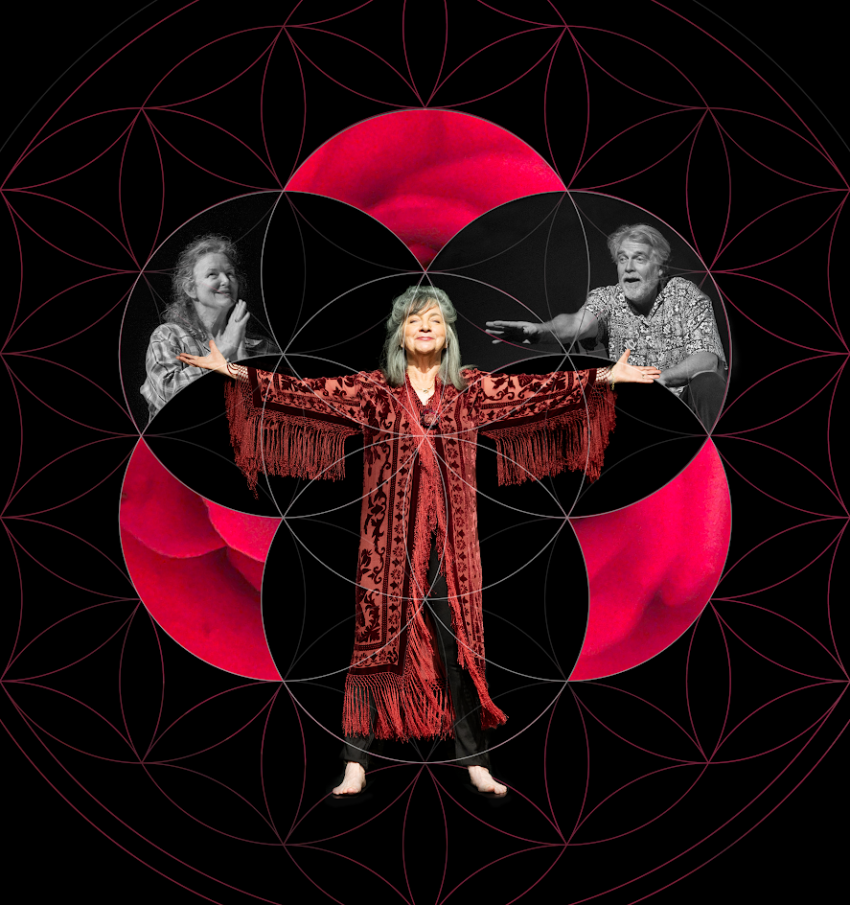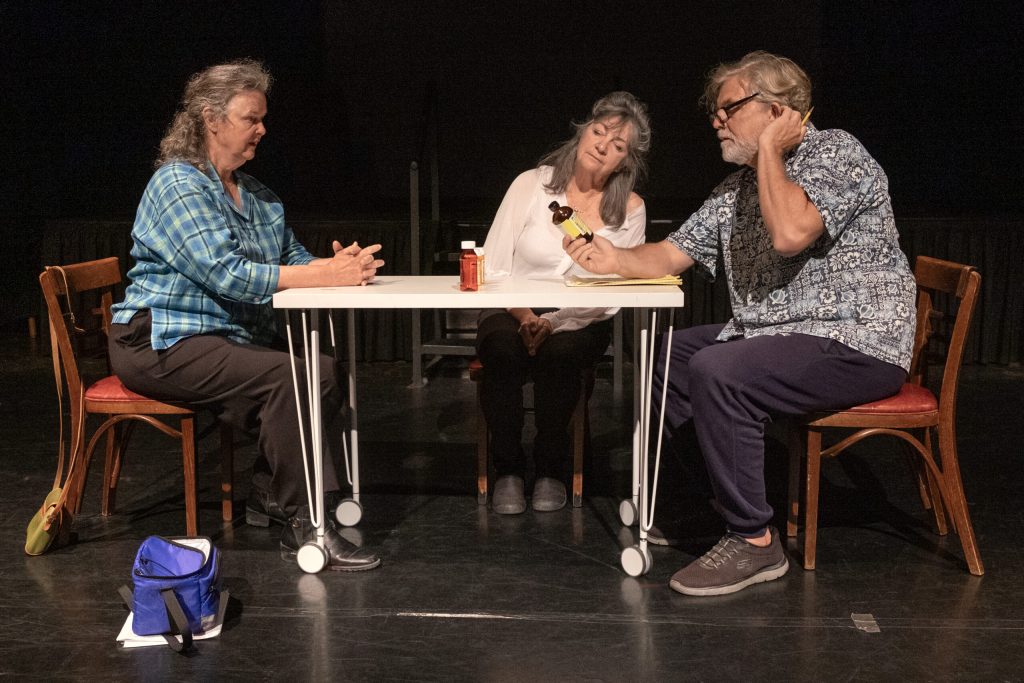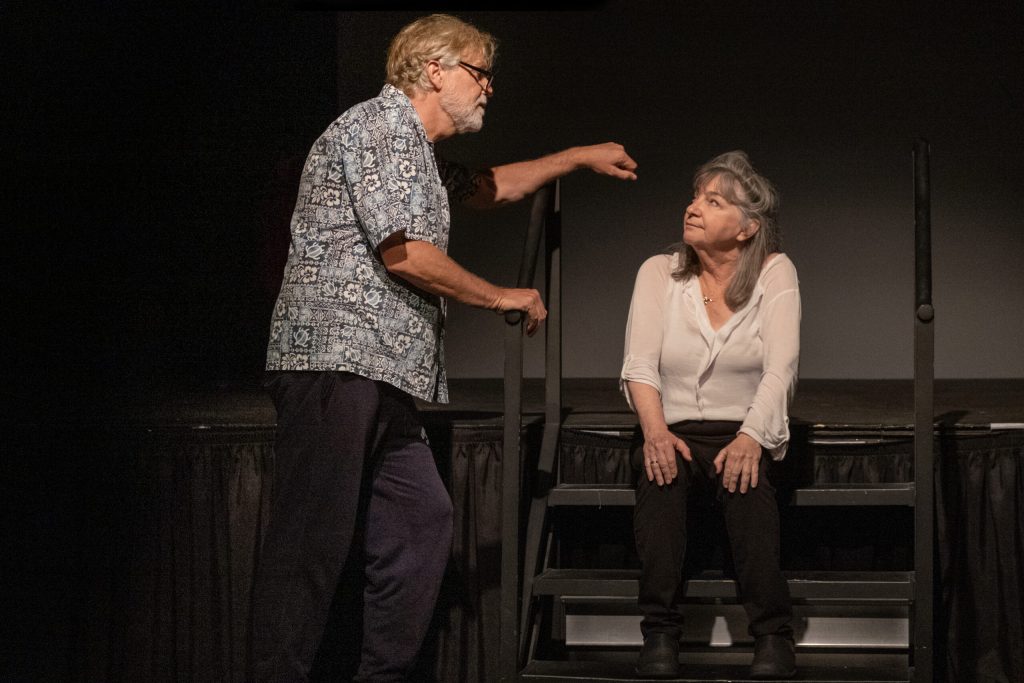
“180 Days. To Die. To Live.” Swift, Surprising Journey to the End—at The Marsh
Stephanie Weisman Unveils Bittersweet Secrets, Life-Changing Insights
by Corey Finnegan & Barry David Horwitz
What would you do in the face of a fatal diagnosis? Try to live every moment as if it were your last? Take every treatment to try prolonging your life? Or decide to end it on your own terms?
These questions hang over “180 Days. To Die. To Live,” a personal memoir of life lived in the shadow of impending death by writer and actor Stephanie Weisman. Weisman tells the tale of her late husband Richard (earthy Josiah Polhemus) and his battle with late-stage pancreatic cancer. Weisman brings us the daily discussions about how to end it all.
Although Richard proclaims, “I’m going to shoot myself,” he produces a rational plan to avoid the Hell of a long, painful decline. He chooses to end his life with dignity.
In a gruesomely funny scene with Stephanie, Richard, and a generous pharmacist, Weisman touches a poignant chord. As the pharmacist, delightful Anne Daragh explains the medications over and over until we are swimming in a sea of horrific details. Darragh’s delicious dry wit makes the whole process comic.

Gallows humor helps them deal with the inevitable. When Darragh explains the dosage, she assures the couple that, “Everyone says it’s very peaceful.” To which Stephanie quips: “What people? The dead people?”
Stephanie is determined to help her ruggedly self-reliant husband. She faces tough choices. As Richard, Polhemus believably portrays a man facing death with stoic acceptance. Director Robert Kelley transmit intimacy and affection as the actors flow toward a powerful and poetic climax in space.
The play’s most interesting and unexpected moments come when the focus shifts to Stephanie’s old friend Shelley (enchanting Daragh), By a strange fate, Shelley is also battling pancreatic cancer. Unlike Richard, Shelly rejects conventional treatment but treats herself by living life fully: “It’s the treatment of freedom. Whatever I feel like doing, I just do it.” For Shelley, “This cancer is a revolution.”

Richard’s final decisions are heart-rending and surprisingly dramatic. Weisman has the guts to treat us as adults, allowing us to draw our own conclusions, even as her acceptance runs up against the absurdities of U.S. healthcare. Stephanie and Richard cannot find a hospice that will respect Richard’s decision. In the end, his life ends suddenly and unceremoniously in a revelatory scene.
Shelley’s story of her father’s painful attempt to die with dignity makes another moving moment. She insists that End of Life Act has brought a blessing because we now have the choice to die on our own terms.
For anyone who has ever had to reckon with the approaching death of a loved one, “180 Days” will ring true. This play is full of insights for the living. Weisman’s beautifful ending puts life in the center, under a starry sky, imploring: “Honor this Life / Honor the Life within.” Her honest and heartfelt drama leaves us feeling refreshed.
“180 Days. To Die. To Live” by Stephanie Weisman, directed by Robert Kelley, developed with Kathryn Keats, Marc Monserrat-Drukker, & Bruce Bierman, dramaturged by David Ford, vocal coaching by Candace Johnson, at The Marsh, Berkeley.
Info: themarsh.org – to December 8, 2024.
Cast: Stephanie Weisman, Josiah Polhemus, & Anne Darragh.